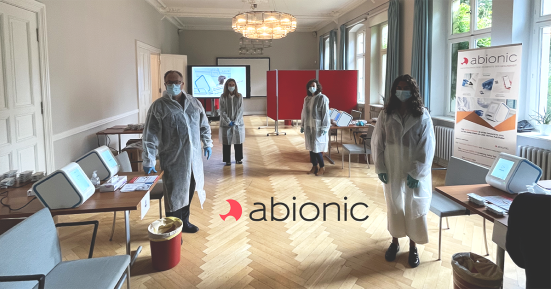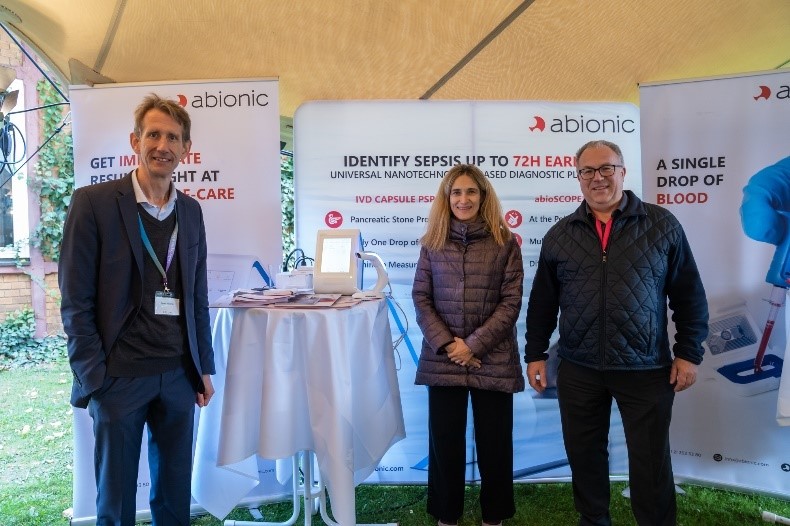
October 11th, 2022
The Global Sepsis Alliance (GSA) and the Sepsis Stiftung joined together to celebrate 10 years of World Sepsis Day on 16 September 2022 in Berlin, under the theme of " Making Sepsis a National and Global Health Priority”. The event aimed to engage with high-level policy makers, representatives of health authorities, patient organizations, health care providers, science, industry, and civil society, to learn from each other through networking and the exchange of best practices from around the world. The G7 Health Ministers were invited for the occasion.
The event was welcomed by Dr. Tedros Adhanom Ghebreyesus, WHO Director-General, Patron of the event and Konrad Reinhart, Chair of Sepsis Stiftung. The hosts reminded us of the importance of being together today in the fight against sepsis by highlighting the commitment to taking measures to prevent, diagnose and treat sepsis as part of efforts to strengthen national health systems. Dr. Ghebreyesus claimed during his speech that “the best defense against sepsis is strong responsive and resilient health systems”.
The day was split into 3 parts: Health Policy and Quality Improvement, learning from successful national sepsis initiatives and Celebration and Fundraising Event.
Abionic was present to support this important day, providing their 2-minute saliva antigen COVID-19 tests on the abioSCOPE®. This allowed all 150 participants, speakers and event staff to be tested and safely enjoy the event.
In addition, Abionic showcased in the exhibition area their innovative in vitro diagnostic test for the early detection of sepsis using the Pancreatic Stone Protein (PSP), a novel and unique biomarker which has been shown to increase in blood levels up to 72 hours before the clinical diagnosis of sepsis, thus offering a unique opportunity for physicians to diagnose and initiate the appropriate patient treatment in a timely manner.

A roundtable scientific session took place with key opinion leaders, members of the GSA, Sepsis Foundation board and executive team as well as industry representative to discuss how to continue to collaborate on the fight against sepsis. Dr Ventura – Chief Medical Officer of Abionic and physician specialized in intensive care medicine in a large hospital group in Switzerland, held a speech focused on sepsis and antimicrobial resistance (AMR), a major global public health threat, for which one of the main drivers are overuse of unnecessary antibiotics, including broad-spectrum empiric antibiotics. Therefore, the decision “To give or not to give antibiotics?” is critical to fight these two public health priorities, sepsis and AMR. Dr Ventura reminded the audience that today only clinical evaluation is recommended in the Sepsis-3 consensus to aid the diagnose of sepsis and infection, therefore a suspicion of infection is the only criteria used to start antibiotics. This approach does not work as there is only 30% definitive infection confirmed, and the use of biomarkers in combination with clinical evaluation to start antibiotics do not bring any added value when there is already a clinical suspicion of sepsis, when compared to clinical evaluation alone (Evans et al. Intensive Care Med (2021)). However, biomarkers may have an added value for pre-symptomatic diagnosis of sepsis and to rule-out infection. In particular PSP has been largely studied as an early biomarker of sepsis as demonstrated in several clinical studies (Pugin et al. Crit Care (2021), Klein et al. Ann Surg (2020)).
Dr Ventura formulated the following recommendations based on clinical evidence published as of today and his practical experience:
- To give antibiotics if the likelihood of infection is thought to be high and not to give antibiotics in case a biomarker (such as PSP) with a good negative predictive value is low.
- To give antibiotics before the infection is suspected if a routine daily biomarker (PSP) can detect presymptomatic diagnostic sepsis
- Not to give antibiotics prophylactically in hospitalized patients.
- To stop antibiotics as soon as possible based on clinical evaluation and biomarker measurement.
The event ends with a celebration and fundraising dinner in the evening accompanied by jazz musicians and piano music played by a sepsis survivor.